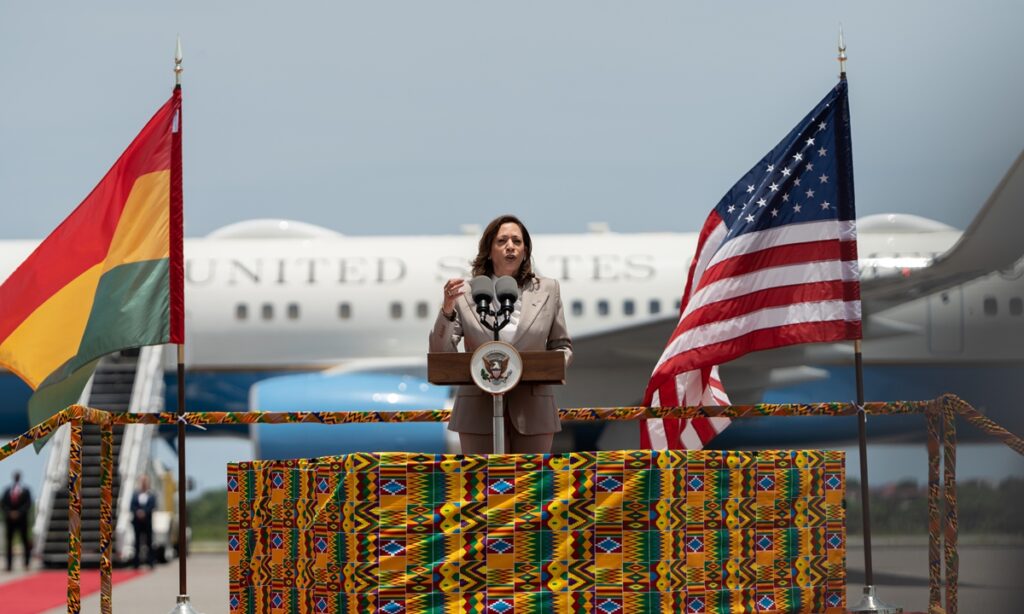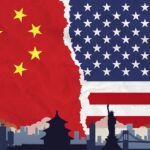While US Vice President Kamala Harris said on Sunday that the US will increase investment in Africa and help spur economic growth as she began a week-long tour of the continent, experts said that as Africa’s development aspirations are not the core concern of the US, the intensive visits by senior US officials may make African countries feel the pressure of being squeezed by great power competition.
According to Reuters, Harris will meet Ghana President Nana Akufo-Addo on Monday and visit a castle from which slaves were sent to the US during the slave trade era.
Harris will also discuss China’s engagement in technology and economic issues in Africa that concern the US, senior US officials said last week.
“On this trip, I intend to do work that is focused on increasing investments here on the continent and facilitating economic growth and opportunity,” Harris said shortly after touching down in Ghana, the first destination in a trip that will include visits to Tanzania and Zambia. She will meet with the three countries’ presidents and announce public- and private-sector investments.
Harris’ visit follows what the US refers to as a new Africa strategy to compete strategically and ideologically with Russia and China on the continent, experts pointed out.
The choice of the countries to be visited is very characteristic, said Song Wei, a professor at the school of international relations and diplomacy at Beijing Foreign Studies University. Tanzania and Zambia are traditional friendly countries of China, while Ghana is the “democratic representative” established by the US, and also a point of entry for the US to play the “value card” in Africa, Song noted.
In addition, Harris’ visit to Africa is expected to be a prelude to US President Biden’s own Africa trip, Shen Xiaolei, an associate research fellow at the Chinese Academy of Social Sciences in Beijing, told the Global Times on Monday.
On March 16, US Secretary of State Antony Blinken announced $150 million in new humanitarian aid for Africa’s Sahel region during a visit to Niger.
Taking a closer look at the visits to Africa by these US officials, we found they are mostly repeating promises rather than delivering real money, Shen said. What they focus on first is not what they can bring to Africa, but what they want Africa to do, especially telling Africa to keep a distance from China and Russia and asking Africa to take sides.
This is still a Cold War mentality of geopolitical competition, whose fundamental purpose is not for Africa’s development, but for the interests of the US, experts warned.
The intensive visits of senior US officials to Africa have put forward a series of ideas to support Africa, but one intensive visit can hardly erase decades of neglect of African countries, Song said.
As African countries are increasingly focusing on their own development, they can surely tell who their real partners are, and they are becoming more and more capable of choosing their own partners, Shen noted.
“Therefore, no matter how good the US officials say and how many promises they make, what matters is whether they deliver on those promises. Otherwise, for African countries, the US is still sending a blank check and making a political show.”
(Global Times)




